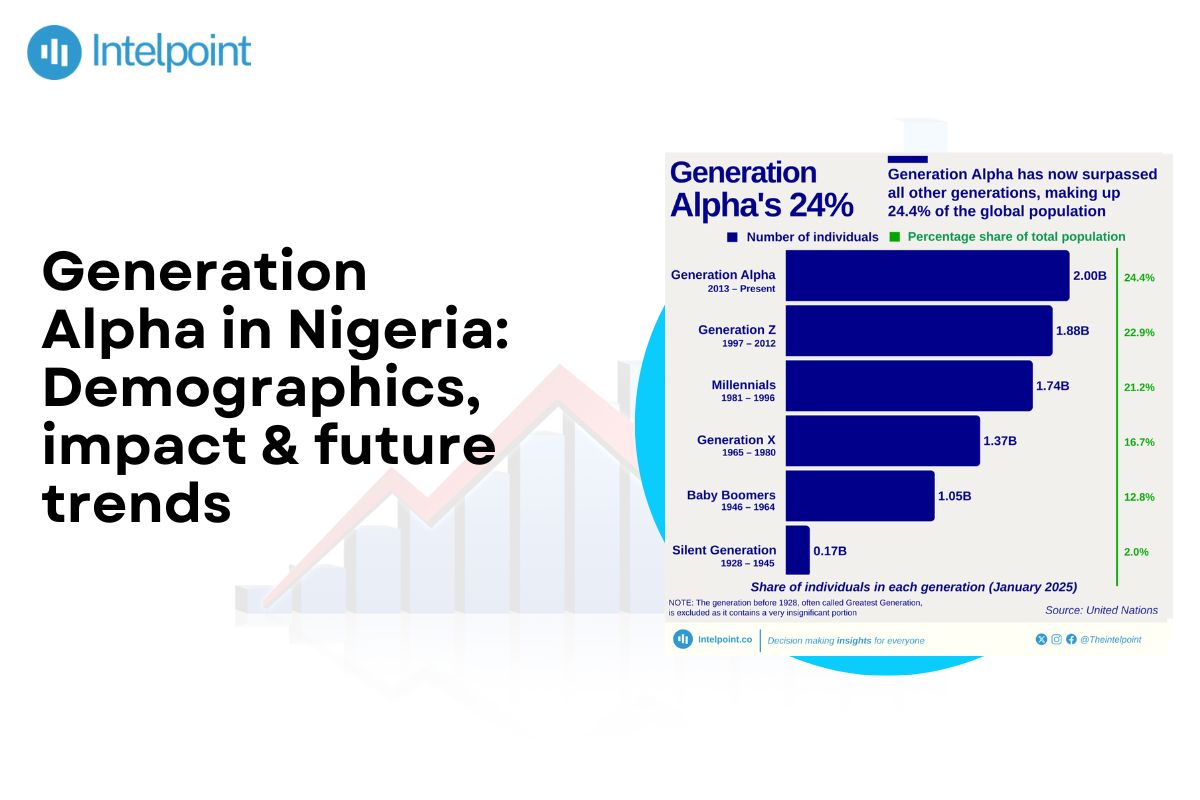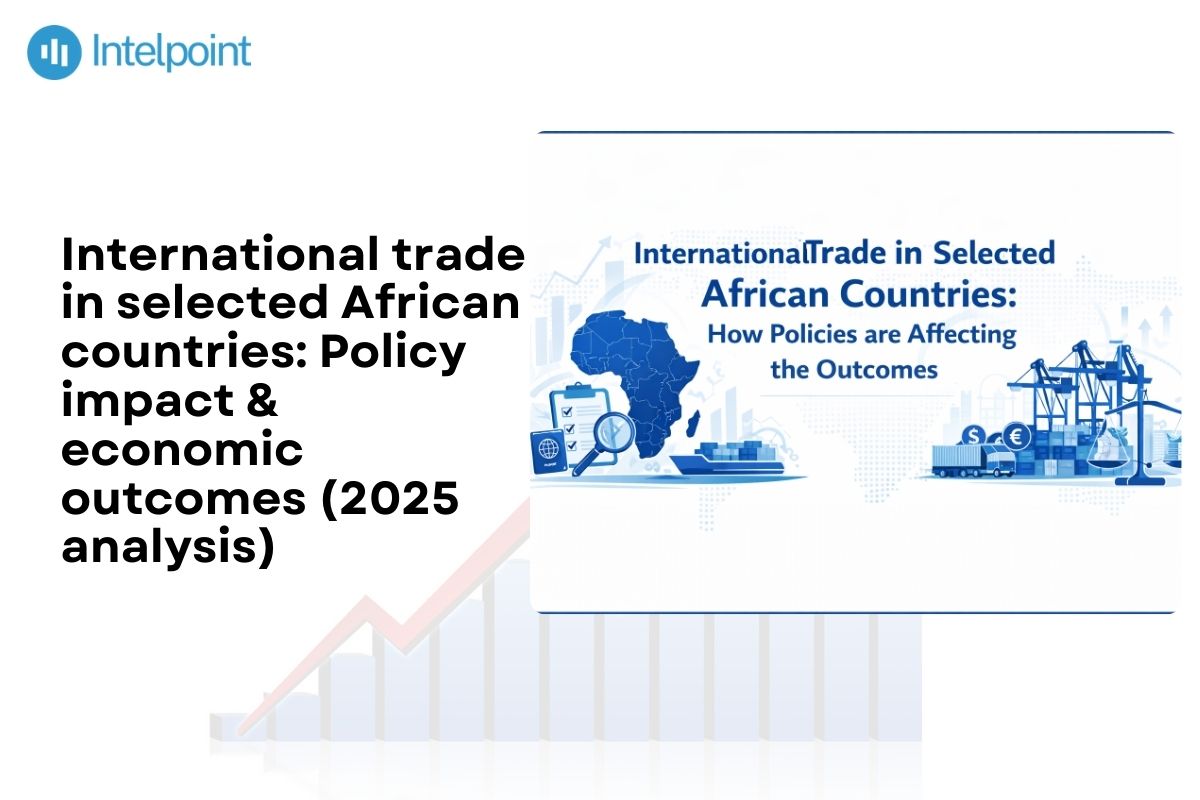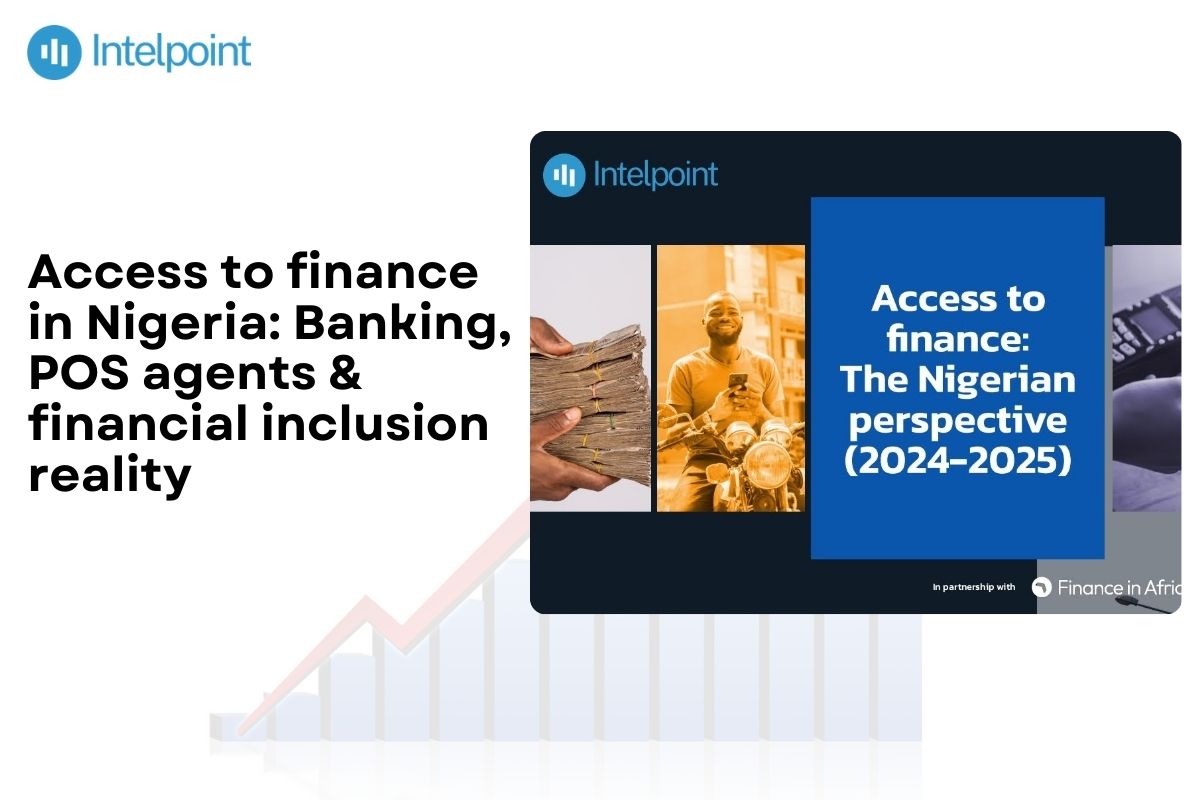Generation Alpha, children born from 2010 onward, represents the youngest and most digitally immersed cohort in Nigeria’s population.
Data harvested from IntelPoint reveals they now make up 24.4% of the global population, a striking figure that underscores their growing influence on the future.
Narrowing down to Nigeria’s high birth rate and youthful population profile, this generation is set to become a defining force in the nation’s educational, economic, and cultural evolution.
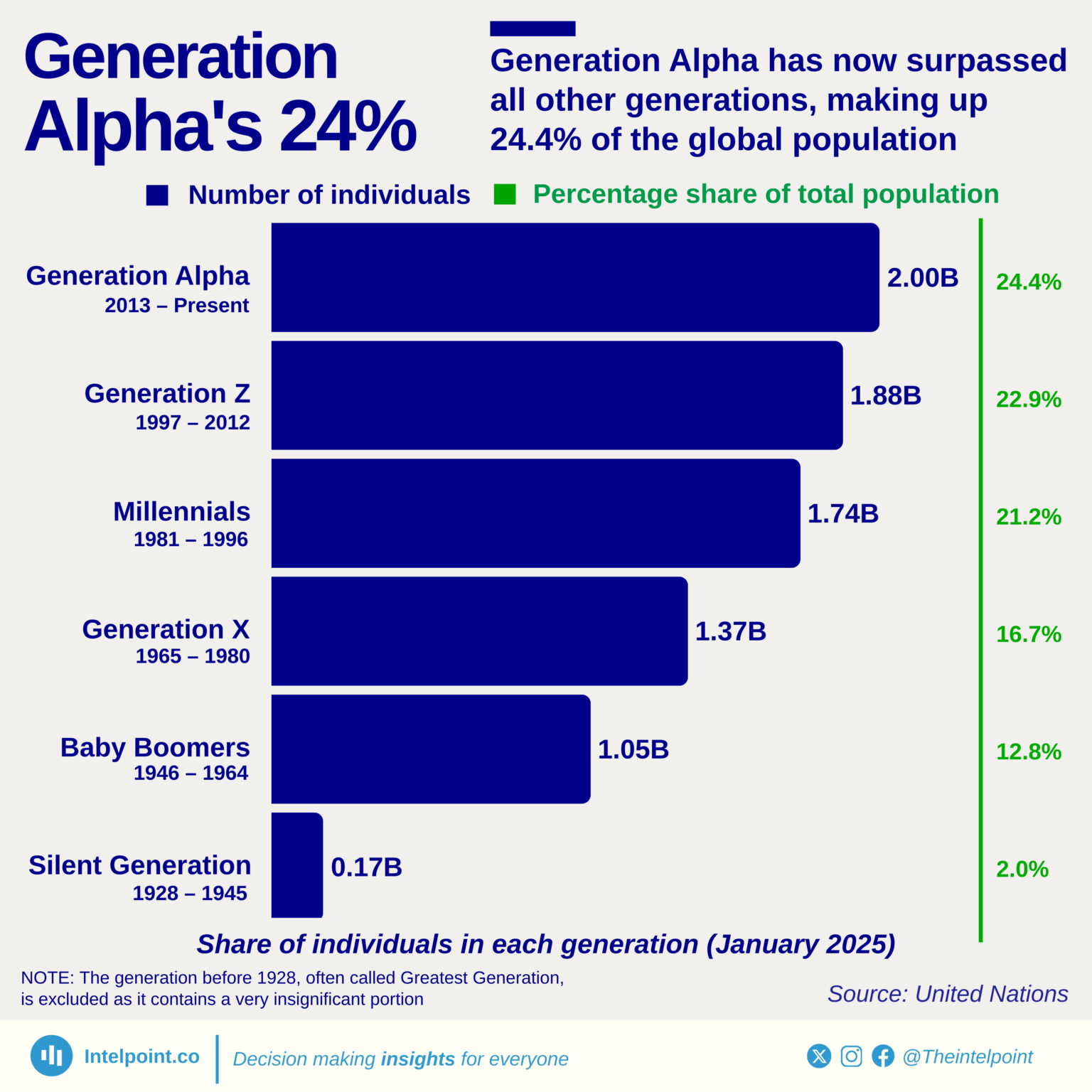
The dominance of Generation Alpha is inevitable, and understanding their future needs will be key for brands, education systems, and governments alike.
In this article, we’ll explore who Generation Alpha is in Nigeria, their defining characteristics, the socioeconomic implications of their presence, and what lies ahead as they grow into adulthood.
Who is Generation Alpha?
Most sources define Gen Alpha as the cohort born between 2010 and 2025, but demographers are still debating this definition. They succeed Generation Z and will be followed by Generation Beta.
Globally, Generation Alpha is the first generation to be born entirely in the 21st century, growing up in an environment shaped by rapid technological advancement, increased internet penetration, and shifts in education delivery.
In Nigeria, their formative years are marked by the expansion of mobile connectivity, ongoing education reforms, and the influence of both urban and rural cultural dynamics.
Defining characteristics of Generation Alpha in Nigeria include:
- Digital exposure from early childhood, though the extent varies by location and socioeconomic status.
- Education policy targets and international development programs drive higher literacy expectations.
- Health and nutrition improvements have been observed compared to earlier cohorts, although disparities still exist across regions.
This generation’s experiences will be shaped not only by technology but also by Nigeria’s demographic composition, which presents both opportunities and challenges for policymakers, given the country's large youth population.
Nigeria’s age structure and Generation Alpha’s place
Nigeria’s age structure is distinctly youth-heavy. UN World Population Prospects 2024 (via the World Bank) shows that children make up over two-fifths of the country, while older adults remain a very small share.
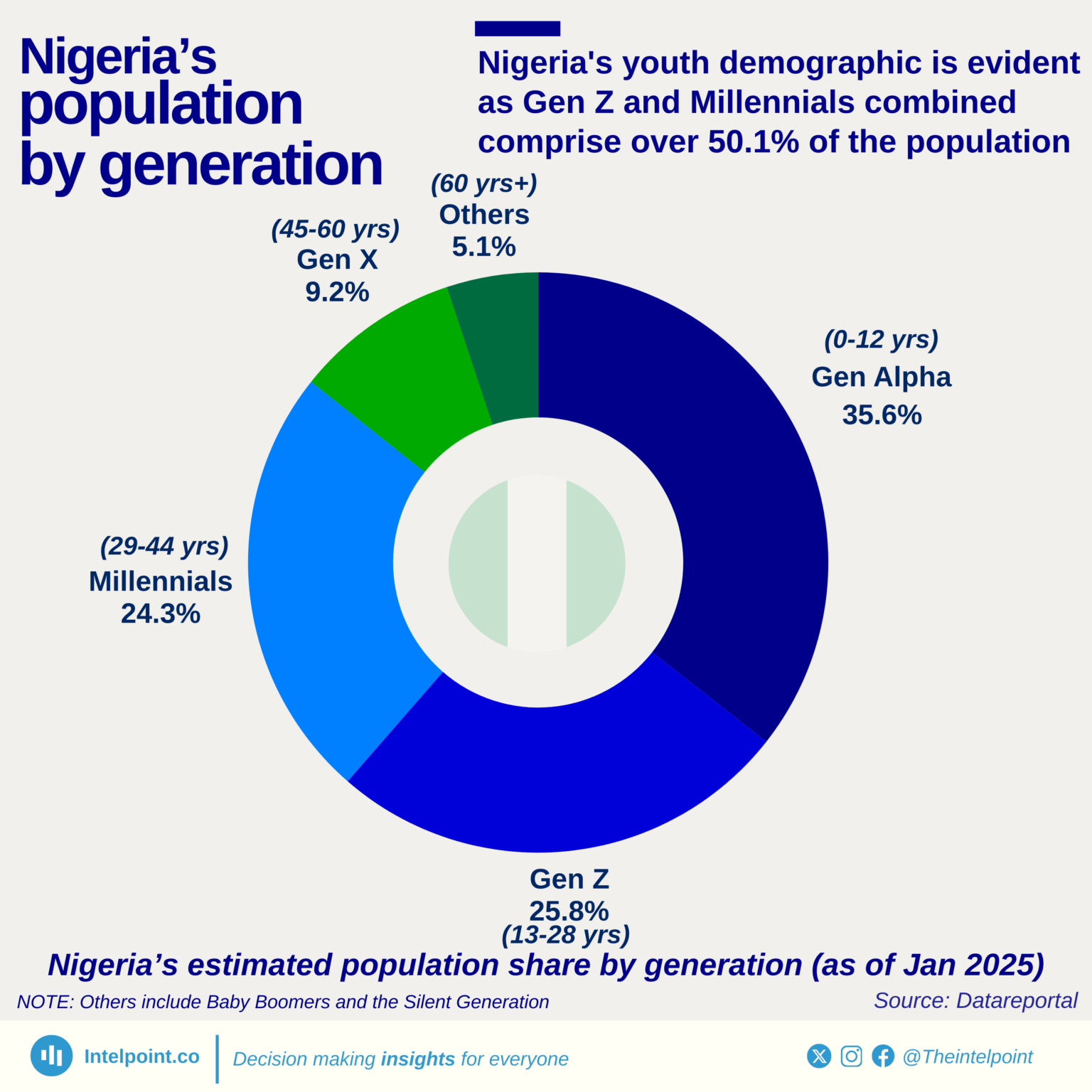
Nigeria’s population by generation (January, 2025)
Based on data gathered by IntelPoint from Datareportal, Gen Z and Millennials combined make up just over half of Nigeria’s population at 50.1%.
Gen Alpha alone represents 35.6% of the total population, making it the largest single generational cohort. Gen Z, born between the late 1990s and early 2010s, accounts for 25.8% of Nigerians.
Millennials comprise 24.3% of the population, maintaining a strong influence across work, culture, and consumer trends. On the other hand, Gen X, typically born between 1965 and 1980, represents only 9.2% of the population.
Older generations (Baby Boomers and Silent Generation) account for just 5.1% of the total population.
In other words, Nigeria’s entire population under the age of 44 (Gen Alpha, Gen Z, and Millennials) represents approximately 85.7% of the total population.
Key Comparison with Other Generations
Generation Alpha vs. Generation Z
While both are digital natives, their life stages and cultural touchpoints differ markedly.
Gen Alpha is still in its formative years, with most in primary or secondary school. Their worldview is being shaped almost entirely in an era of smartphones, artificial intelligence, short-form video content, and personalized learning platforms.
Gen Z, on the other hand, is already transitioning into adulthood, entering higher education, building careers, launching entrepreneurial ventures, and influencing mainstream culture through music, fashion, and online communities.
While Gen Z has had to adapt to evolving technology, Gen Alpha is growing up with it fully integrated into their daily lives from birth, making them potentially more dependent on and fluent in emerging digital ecosystems.
Generation Alpha vs. Millennials
Millennials are now in their prime working and parenting years, making them the current drivers of economic output, home ownership trends, and consumer spending patterns.
Many Millennials are the parents of Gen Alpha, meaning their parenting styles (often influenced by their own tech-savvy and globally connected experiences) are shaping Alpha’s values and opportunities.
While Millennials are actively navigating mid-career growth, financial responsibilities, and raising children, Generation Alpha’s contribution is still in the future.
By the time Alpha enters the workforce en masse, they are expected to operate in a far more automated, data-driven economy, potentially with career paths that barely exist today.
Generation Alpha vs. Older Generations
Nigeria’s demographic structure is heavily weighted toward youth, a sharp contrast to ageing societies in Europe and East Asia.
Older cohorts such as Generation X and Baby Boomers form a smaller percentage of the overall population, meaning they hold less numerical influence on long-term economic direction.
However, these older generations currently occupy most senior leadership roles in politics, traditional institutions, and large-scale industries.
The key demographic shift will occur as Gen Alpha, backed by its sheer population size and technological fluency, gradually replaces older generations in both influence and workforce participation.
This youth-dominated structure offers Nigeria a “demographic dividend” if investments in education, infrastructure, and innovation are prioritized today.
Implications of a youth-heavy base
A youth-heavy base, such as Nigeria’s, presents a unique crossroad for the nation’s future.
With Generation Alpha poised to make up a substantial portion of the population in the coming decades, the country stands on the threshold of a potential demographic dividend, where a large, educated, and skilled youth workforce could drive innovation, productivity, and economic expansion.
However, this promise is far from automatic.
Without strategic investments in quality education, robust healthcare systems, and sustainable job creation, the same demographic structure could instead fuel rising unemployment, deepen social unrest, and leave much of this generation’s potential untapped.
What this data means for nigerians
The growth of Generation Alpha will have far-reaching effects on society, particularly in education, the economy, and policy planning.
In education, as more children enter the system, the demand for primary and early secondary schooling is expected to rise significantly. This will require expanded classroom capacity, more trained teachers, and updated curricula to match evolving global competencies.
In terms of Nigeria's economy, a larger youth population means a stronger future workforce. If nurtured well, Generation Alpha could bring increased entrepreneurship, especially in digital industries, entertainment, and service-based sectors.
And lastly, policy needs. Governments and stakeholders will need to invest in infrastructure, skills training, and child welfare. These efforts will help ensure that the potential of this generation is fully realized and that social inequalities are minimized.
FAQs
What comes after Generation Alpha?
After Generation Alpha, Generation Beta is projected to start around the mid-2020s, while still young, Gen Beta will likely experience even deeper integration of artificial intelligence, automation, and emerging technologies into daily life.
Is Generation Alpha bigger than Gen Z in Nigeria?
Not yet. Gen Z (born roughly between 1995 and 2009) still makes up a larger portion of Nigeria’s population. However, due to Nigeria’s high birth rate, Generation Alpha is growing rapidly and could eventually surpass Gen Z in size within the next decade.
How will Generation Alpha impact the economy?
With high digital literacy and adaptability, Generation Alpha has the potential to drive innovation, entrepreneurship, and the creation of new industries, provided they receive adequate educational support and equitable access to technology.

